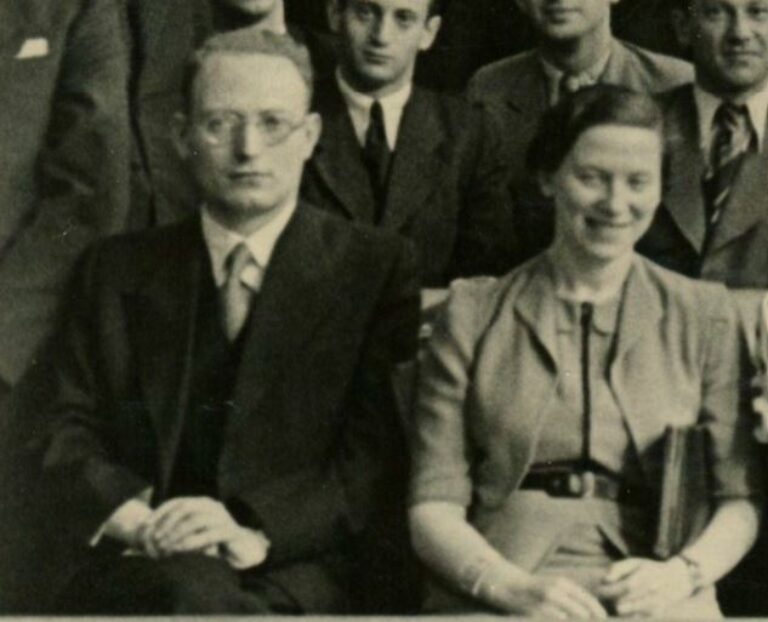He received his rabbinical diploma and doctorate in Breslau (now Wrocław, Poland). Starting in 1935, he taught Talmud at the Higher Institute for Jewish Studies in Berlin and worked there until 1940. During this time, he ordained numerous graduates as rabbis.
In 1940, facing increasing danger in Europe, Guttmann fled with his family to the United States, where he became a professor of Talmud at Hebrew Union College in Cincinnati, Ohio. During his long teaching career, he wrote several important works and articles, including “The Editorial and Factual Relationship between Mishna and Tosefta” (1928) and “Rabbinic Judaism in the Making” (1970).
Guttmann was also active in various Jewish scholarly organisations and received numerous awards, including a Guggenheim Fellowship, for his dedication. He was a passionate amateur photographer and frequently traveled to Israel and Europe. Guttmann died in 1994 in Cincinnati, Ohio.
The rescue operation and its epilogue
When Guttmann left Germany in 1940, he took along some books from the Institute’s library. As Guttmann recalled years later, it was the library director Jenny Wilde and Heinrich Veit Simon, chairman of the board, who entrusted him with sixty of the Institute’s most valuable books to save them. Guttmann hid these among the books of his personal library and successfully smuggled them out of the country. Thanks to this courageous action, a portion of the Institute’s cultural heritage was rescued just before the Nazis looted the Institute’s library.
Guttmann kept the books he had rescued from the Institute and decided in 1984 to publicly auction them off. This announcement prompted a lawsuit. The sale at Sotheby’s auction house was blocked by objections from survivor groups as well as Jewish educational and cultural institutions, who questioned whether these books were Guttmann’s to sell, that is, whether he was their rightful owner. But that was precisely the question: who owned the Institute’s books now that the Institute itself was history? Since Alexander Guttmann had smuggled them out of the country at great personal risk, did he not have a right to them? Or should these books be held by a public institution? In 1985, a settlement was reached between the Guttmann family and the Attorney General of New York. The newly established Judaica Conservancy Foundation assumed responsibility for the contested books, distributing them to public cultural institutions in the US, UK and Israel. As part of this agreement, the Guttmann family received financial compensation.
The story of Alexander Guttmann illustrates the complex and often unclear choices faced by individuals during and in the aftermath of the Nazi persecution.
